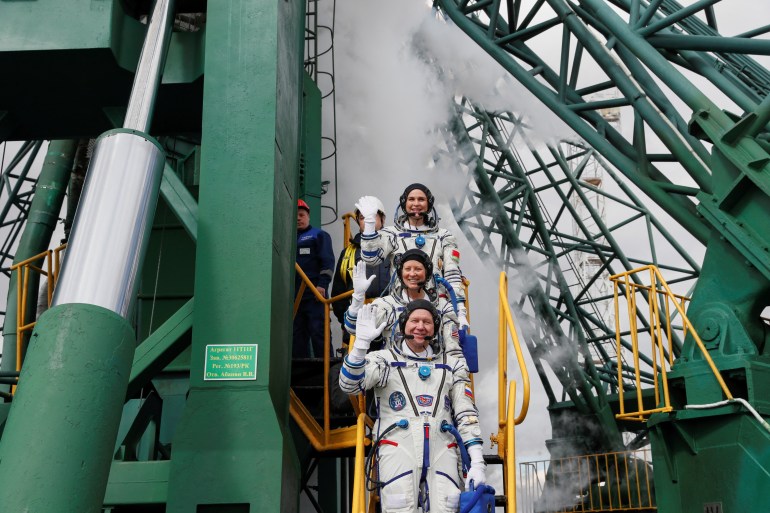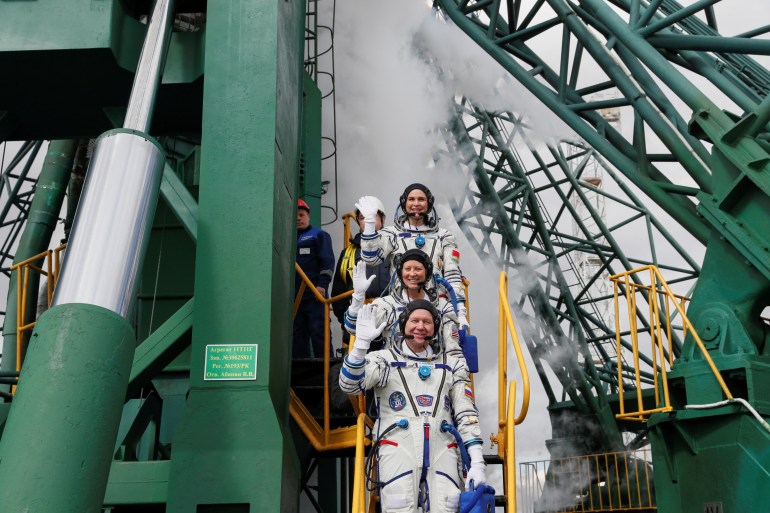The successful take off to the International Space Station follows an aborted launch on Thursday after a voltage drop in a power source.
A Russian Soyuz rocket carrying three astronauts to the International Space Station (ISS) blasted off on Saturday, two days after its launch was aborted at the last minute.
The spacecraft carrying NASA astronaut Tracy Dyson, Russian Oleg Novitsky and Marina Vasilevskaya of Belarus launched smoothly from the Russian-leased Baikonur launch facility in Kazakhstan.
The space capsule atop the rocket separated and went into orbit eight minutes after the launch. It then began a two-day, 34-orbit trip to the space station.
The three astronauts are to join the station’s crew, NASA astronauts Loral O’Hara, Matthew Dominick, Mike Barratt, and Jeanette Epps and Russians Oleg Kononenko, Nikolai Chub, and Alexander Grebenkin.
Novitsky, Vasilevskaya and O’Hara are to return to Earth on April 6.
The space station, which has served as a symbol of post-Cold War international cooperation, is now one of the last remaining areas of collaboration between Russia and the West amid tensions following Russia’s full-scale invasion of Ukraine.
NASA and its partners hope to continue operating the orbiting outpost until 2030.
Russia has continued to rely on modified versions of Soviet-designed rockets for commercial satellites, as well as crews and cargo to the space station.

Aborted launch
The launch had been planned for Thursday, but was halted by an automatic safety system about 20 seconds before the scheduled liftoff.
The head of the Russian space agency, Yuri Borisov, said a voltage drop in a power source triggered the launch to be aborted.
The aborted launch was a significant mishap for the Russian space programme.
It followed an October 2018 launch failure when a Soyuz rocket carrying NASA astronaut Nick Hague and Roscosmos’s Alexei Ovchinin to the ISS failed less than two minutes after the blastoff, sending their rescue capsule into a steep ride back to a safe landing.
Hague and Ovchinin had a brief period of weightlessness when the capsule separated from the malfunctioning Soyuz rocket at an altitude of about 50km (31 miles), then endured gravitational forces of six to seven times more than is felt on Earth as they came down at a sharper-than-normal angle.
The 2018 launch failure was the first such accident for Russia’s manned programme in more than three decades.
If the launch had gone as scheduled on Thursday, the journey would have been much shorter, requiring only two orbits. Docking is now expected at 15:10 GMT on Monday.
Read More: World News | Entertainment News | Celeb News
Al Jazeera








